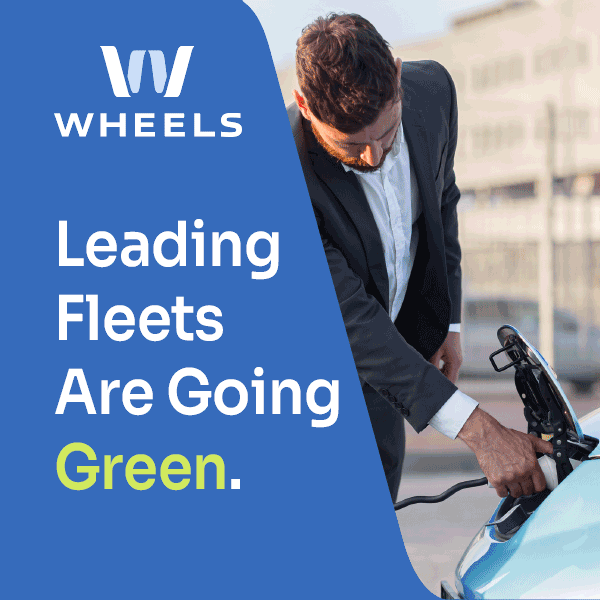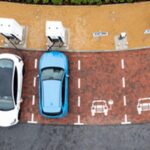Hertz Will Stop Buying EVs From Polestar, Too
In 2022, Hertz said it planned on purchasing 65,000 battery-powered Polestars in a bid to become a global leader in EVs.
But a little more than a year later, Hertz had a change of heart, mostly because its acquired EVs had lost most of their value.
It’s a disappointing turn for Hertz, which had previously set a target for 25 percent of its fleet to be electric by the end of 2024. Last month, Hertz said it would sell 20,000 Teslas, or roughly one-third of its electric fleet. And now its deal with Polestar has been put on pause.
NAFA Names Leadership Expert Richard Hadden as Opening Keynote for 2024 I&E
NAFA Fleet Management Association announces that certified speaking professional, esteemed author and leadership consultant Richard Hadden will take center stage as the opening keynote speaker for the upcoming NAFA 2024 Institute & Expo.
"We are delighted to have Richard Hadden, a seasoned expert in leadership and management, share his insights at NAFA 2024 Institute & Expo”, said Bill Schankel, CAE, CEO of NAFA. “His expertise aligns perfectly with our commitment to providing valuable knowledge and actionable takeaways for our attendees."
New EVs, Trucks, Vans Drive the Blue Carpet at Work Truck Week® 2024
Work Truck Week runs March 5–8, 2024, at Indiana Convention Center in Indianapolis, Indiana. It encompasses Green Truck Summit, The Work Truck Show®, NTEA Annual Meeting, Ride & Drive, educational sessions and more.
“One of the reasons busy industry professionals make time to attend Work Truck Week is to take advantage of the unmatched opportunity it provides for them to not only see, but touch, explore and even drive the latest products from more than 500 exhibiting companies,” says Steve Carey, NTEA president & CEO.
Ford to Offer Complimentary Tesla Supercharger Adapter to Eligible EV Customers
Last year, Ford announced that its EV customers would gain access to Tesla Superchargers across the U.S. and Canada beginning in Spring 2024.
As that moment approaches, Ford President and CEO Jim Farley said today that eligible Ford EV customers will soon be able to reserve a complimentary Fast Charging Adapter.
The Fast Charging Adapter will provide Ford F-150 Lightning, and Mustang Mach-E owners access to Tesla’s V3 and above Superchargers. Ford will start to transition to the NACS charge port from 2025, removing the need for an adapter for direct access to Tesla Superchargers.
The Power Of AI: CerebrumX is Keeping Fleets Connected
By Fleet Management Weekly Staff
We recently interviewed Sumit Chauhan, Chief Operating Officer and Co-Founder of CerebrumX, to find out how his company can help fleet managers monitor the range of vehicles in their fleets.
While most fleets consist of a range of connected and non-connected vehicles, CerebrumX’s FleetConnect solution bridges the gap and delivers insights for your whole fleet in one convenient platform.
"We don’t just provide data, but actual insights in terms of total cost of ownership (which entails predictive maintenance)...We’re also very cognizant of the fact that drivers are the most important asset for a fleet management company. So it’s very important to monitor the drivers’ overall well-being and how they’re driving..."
Recent Posts
- EV Prices are Down 18% Over the Past Year as Drastic Price Cuts Take Effect
- Amazon Installed Over 17,000 Chargers For Its Rivian Electric Van Fleet
- Fleetio Wins Third Consecutive Sales & Customer Service Stevie® Award
- These New EV Charging Features Are Coming to Google Maps
- Ridecell is Ready to Usher Fleet into Digital Transformation Era
- New Prophecta AI Model Reduces Truck Fleet Emissions Up to 40% through Driver Interaction
- Fleet Manager Spotlight: 5 Questions with Ted Chan of Schindler Elevator
- NAFA Announces Nominees for 2024 Fleet Professional & Fleet Technician of the Year Awards
- WIFM Webinar: ‘Hidden Potential’ Book Club Meeting
- Vincentric Analysis of EVs: Nearly Half Have Lower Ownership Costs Than Comparable Gas Vehicles




























